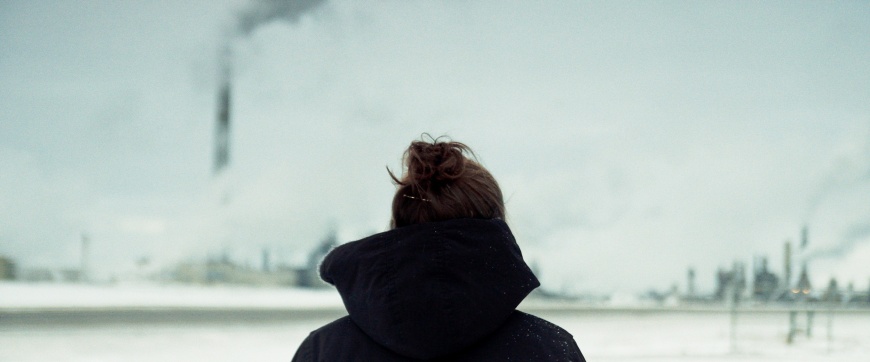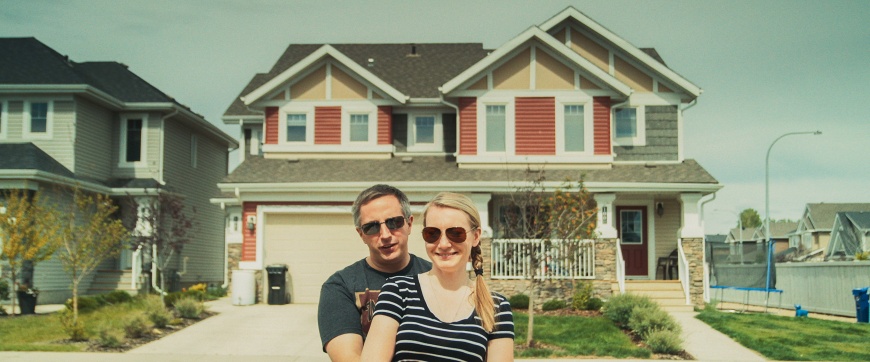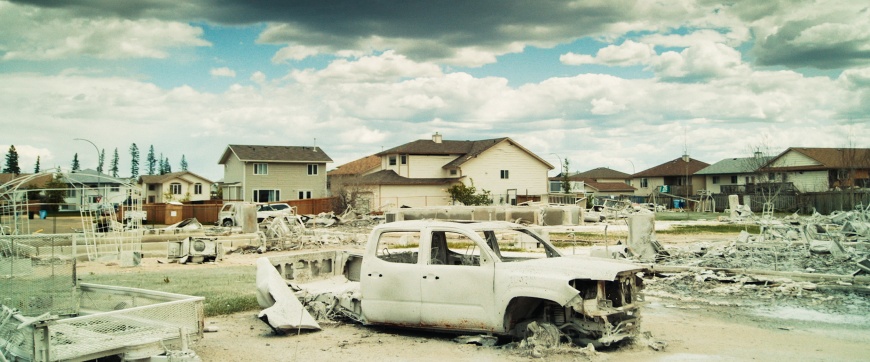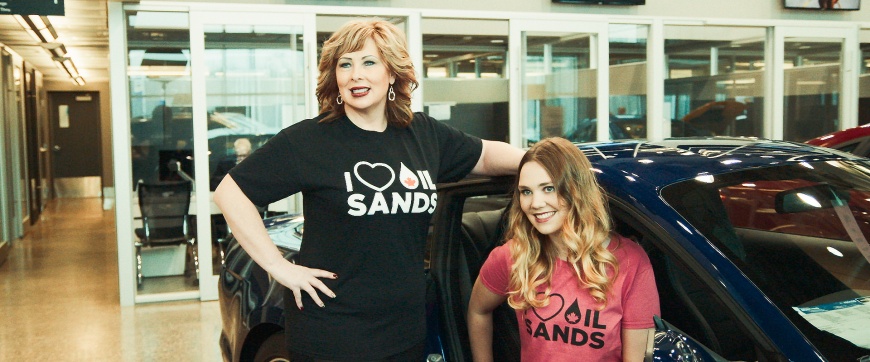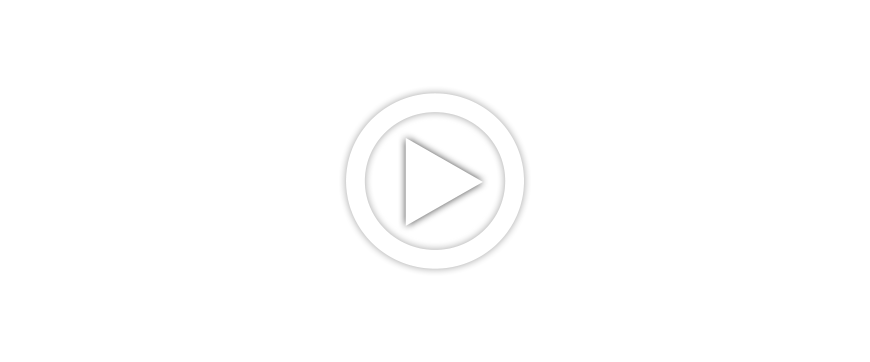Interview with the Directors
Jasmin Herold and Michael Beamish about their film “Dark Eden”
How did you come up with the subject?
Jasmin Herold:
When I worked in a homeless shelter in Calgary years ago, I met many people who wanted to make their fortune in Fort McMurray but had lost everything. At the same time I met other people in my personal environment who earned a lot of money with their work in the oil mines. I was fascinated by the stories but it was only years later that I flew to Fort McMurray for the first time.
Michael Beamish:
I came to the project through Jasmine. We both met at Fort McMurray when Jasmin started researching for the film. I myself grew up in the area and worked at the local college and theatre.
"Dark Eden" is not only a film about oil, but also a personal story about your relationship with Michael. At the same time, however, you can both only be seen briefly at the beginning and end of the film. Why is that?
Jasmin Herold:
We didn't want to make a film about us, but we felt it was important that our story be part of the narrative to show how our lives and the subject of the film became one. That's why our story is conveyed through my narration. But we didn't want to play ourselves into the foreground, but to stay with the stories of all the other people you see in the film.
Especially because of Michael's illness it would have been difficult to maintain this balancing act if we had filmed ourselves. That would have been unfair to the other protagonists, because we could have easily gotten into a judgmental line and that's exactly what the movie doesn't want to do.
Why did you stay there for so long, over two years?
Jasmin Herold:
Because there is no other chance to make a film out there than to live there. Everybody from the outside world is looked at suspiciously and you can't go there for four weeks and expect people to trust you right away and then you have a film in the can.
Michael Beamish:
It's a very closed place in every way. For one thing because it's so isolated. The nearest town is six hours away by car and winter lasts seven to eight months there. For another, because the oil industry is omnipresent and determines the life of everyone there. From schools to public offices, everything is sponsored by the oil industry. The work in the oil mines is like a paramilitary operation. For example, anyone who wears street shoes inside the work camps is fired immediately. People live under constant control and Jasmin often said to me that she felt like she was in George Orwell's "1984". We were constantly given concessions by the oil industry for filming permits. But every time our cameraman turned up, they suddenly deviated from that. One company even said to us that we were on their list and that they would do anything to sabotage our film. It was very difficult for us to gain the trust of the people, because everyone was afraid of losing their jobs if they got involved with us.
What is the thematic core of the film?
Jasmin Herold:
One is that we humans are so keen to believe that there is good or evil. But in my eyes that is an illusion. I have to admit that I also had a lot of preconceived ideas about Fort McMurray and the oil industry when I first flew there. But the different people and stories I found there soon made me get off my high horse. This is not to say that I approve of the destruction and poisoning of nature and people there, but when you meet people from bitterly poor countries who work there to feed their families, you question the good-and-evil concept. At the same time, one wonders what a high price these people are paying: Not only do they run the risk of becoming ill themselves, but they also destroy and poison the people and animals that have always lived there. I have often asked myself what compromises I make, what compromises we all make and when these compromises are no longer ethically justifiable.
Michael, you were diagnosed with cancer during the production of your film "Dark Eden". Why did you continue?
Michael Beamish:
Cancer is horrible and you have no control over it. I found out I had a rare form of medullary thyroid cancer that was very advanced. After I was diagnosed it was as if the cancer exploded and suddenly there was a tumor on the left side of my neck. I had no idea what was happening to me. The only way to go on was to give the tumor a name and a voice of its own. I called him "Timmy the Tumor," and he spoke in a high-pitched voice like Bugs Bunny. The fact that I was not able to come to terms with the reality of my illness was one of the main reasons why I continued to work on the film. I didn't have to think about it while I was working. I remember that I collapsed in the middle of a shoot, yet I kept going. I believed – and of course still do – that it was important to tell the stories of our protagonists. After all, their story is also my story.
Is cancer caused by environmental destruction?
The oil industry and the Canadian government do not allow any independent research into cancer diseases there. Years ago, a doctor linked many rare cancers to the local oil industry and his license was revoked. The oil lobby is extremely powerful in Canada and the media are mostly uncritical of the problem.
They've done various human genetic tests on me here in Germany. Normally there are three factors that cause this kind of cancer, but all three were ruled out. So the disease is most likely due to environmental pollution.
So what happens now after "Dark Eden" for you two?
Jasmin Herold:
We are currently planning our second film project. It will be the second film of a trilogy, the first part of which is "Dark Eden". The focus of the trilogy is on the human belief in progress and its consequences.


